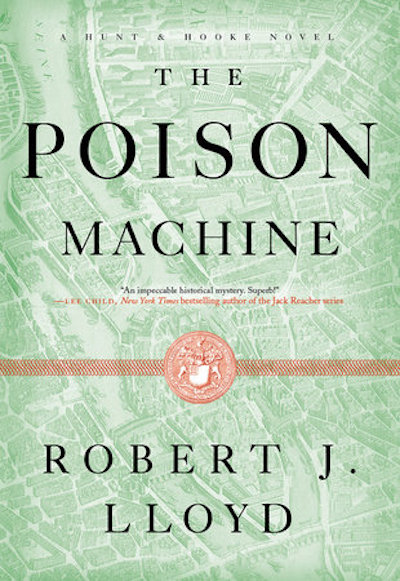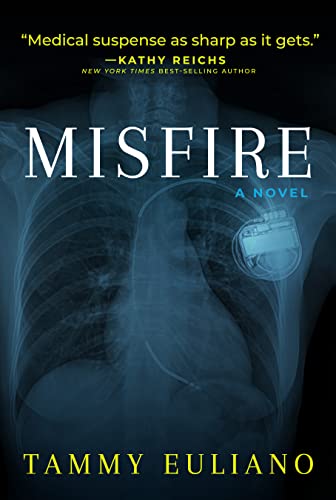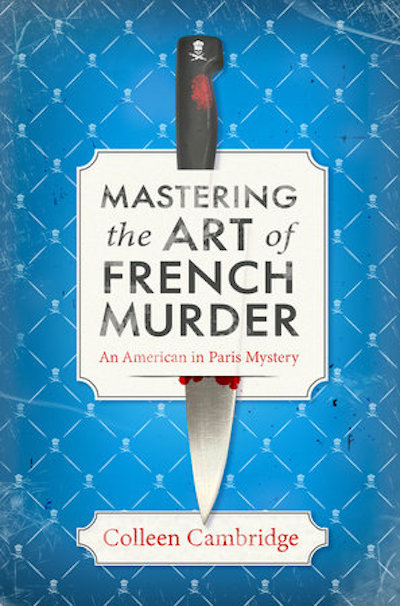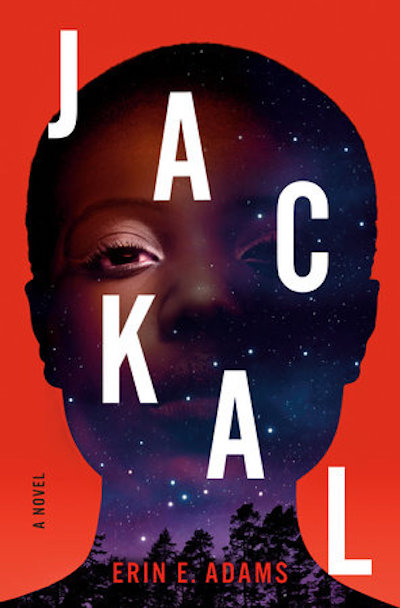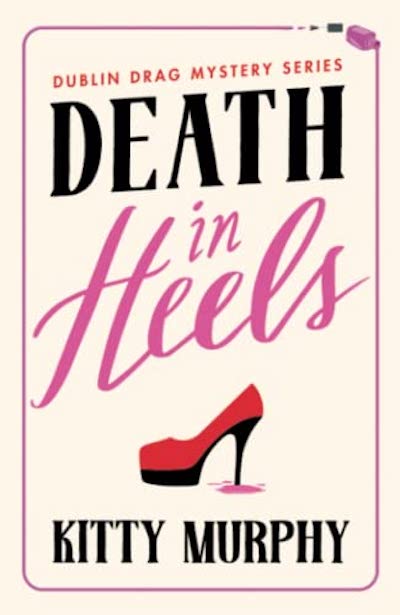It’s great to have Matt Witten publishing crime fiction again. The author of one of my favorite series, the Jacob Burns mysteries, he returned to crime fiction last year with the riveting thriller The Necklace. Killer Story is in the thriller vein, and like The Necklace it provides the reader with plenty to dwell on instead of just rushing to the end—not that there’s anything wrong with that. Petra Kovach is a bright young journalist in a contracting industry. No sooner does she land a job than a year later she’s out the door, a victim of downsizing. It’s happening again, this time at the “Boston Clarion,” and to bide two more weeks she pitches her boss a true-crime podcast that would reopen the violent murder of super right-wing Olivia, a Harvard undergrad—and YouTuber—who had an enormous following. For Petra, this is personal. She was Olivia’s counselor at summer camp, and the two remained tight ever since, despite their political differences. But as Petra tracks down possible murderers, and as her audience grows by the thousands then the millions, she sheds first any journalistic ethics, then any ethics at all. Witten sustains the suspense, with the narrative just leaping ahead, chapter by chapter, while at the same time most readers will be wondering: does the end justify the means? And how far can Petra go? Perfect for fans of Dervla McTiernan and Hank Phillippi Ryan.
Mystery & Detective
When Lloyd first introduced Harry Hunt in The Bloodless Boy (a firstClue starred review and a New York Times “Best New Historical Novel of 2021”), the 17th-century physicist was Robert Hooke’s assistant and the investigator of the gruesome murders of London boys. Here Hunt’s fortunes are doing both worse and better. On the glum side, we see his humiliating failure to replace Hooke as Curator of Experiments at the Royal Society for the Improving of Natural Knowledge, with Lloyd’s almost-tactile picture of academic politicking giving the book a strangely modern feel. Hunt still finds prestigious work though: when the skeleton of a dwarf is found, Queen Catherine requests Hunt as investigator. Captain Jeffrey Hudson was “her” dwarf, and Hunt is tasked with finding out both who killed him and who the still-living man is who claims to be Hudson but is taller. The physicist’s urgent work this time (“the body will not keepe”) takes him far from the Thames shores he clung to in The Bloodless Boy. France is a major setting in the book and a final lengthy and very exciting scene takes us to the Queen’s Catholic Consult, where restrictions against the much-loathed group will be discussed. Lloyd again succeeds in creating an immersive look at the various layers of life his hero encounters, one that draws enough on real events to treat readers to intriguing history, but that also adds just the right fictional elements to keep the plot rich. Another winner
Romance? Check. Medical thriller? Check. Cozy? Mmm…sort of. This book has something for a range of readers, from those who like a second-chance romance to fans of Michael Crichton’s medical thrillers as well as readers who get a kick out of elderly relatives as sleuthing sidekicks. It stars Dr. Kate Downey, a young, widowed anesthesiologist (same profession as the author) who lives with her opinionated Aunt Irm. Irm has recently had an AICD implanted, an internal defibrillator that can shock the heart back to the right rhythm if necessary. (An author’s note explains that Dick Cheney had his AICD’s wireless capability disabled while he was Vice President so that nobody could control it and kill him.) At work, Kate sees a frightening pattern developing over a matter of days. Several AICD users have “misfires,” meaning that their device shocks them at just the wrong moment in a heartbeat, greatly endangering their lives. The suddenness and frequency of these issues seem suspect. As Kate rushes to protect Aunt Irm, she gains the help of a man she’s interested in, but is it too soon since her husband’s death, and what about her new love’s involvement in the business that makes the aberrant AICDs? Get ready for realistic and emotionally intertwined characters throughout this fast-moving tech puzzle; the shocking ending leaves much to ponder, making this a great choice for book clubs (discussion guide included)
Cambridge’s newest series has everything going for it. A magical setting: Paris awakening after World War II, with its fabled lights returning and food overflowing in the marketplaces. A great lead: sophisticated Tabitha Knight, who’s abandoned Detroit, and a dull fiancé, to live with her older French uncle and his longtime partner. Plus some star power: Tabitha’s buddy and neighbor, the young Julia Child, a student at Le Cordon Bleu who can always be found in her kitchen, stuffing some poor bird. Cambridge does a brilliant job capturing Julia with her quirky diction, fluty enunciation, and joie de vivre. But some of that joie flies out the window when a young woman is found dead in Julia’s basement; the murder weapon is a knife from Julia’s kitchen; and a note, in Tabitha’s handwriting, is found on the woman’s person. Tabitha—every bit the modern, independent woman—heads off to track down leads, break into the victim’s apartment, and befriend an American theater group, all the while drawing the ire—and maybe admiration?—of the taciturn, but so very handsome, Inspector Merveille. A first-rate traditional mystery with strong characterization that is certain to appeal to a broad readership, especially fans of Jacqueline Winspear, Rhys Bowen, and Cambridge’s own Phyllida Bright series.
A struggling photographer, twenty-something Liv Spyer is gifted with the powerful abilities to both observe and remember the world around her, gifts she needs if she ever wants to get out of her grandparent’s Greenwich Village brownstone, where she helps out in their key shop while carving out a tiny photography studio for herself in the basement. Finances are at an all time low—the holidays are approaching—when Liv crosses paths with Regina Montague, a prominent events photographer. After a little coercion, Liv convinces Regina to hire her and before you know it, she’s helping to photograph the social event of the season: the Holiday Debutante Ball. This is Liv’s big chance, until socially prominent Charlie Archibald interrupts the evening by being found dead in a pool of his blood, killed by a knife through an eyeball (yikes!). It doesn’t take much for Liv to decide to take on the case, and it’s a delight to follow her over Manhattan as she tries to piece together the puzzle, trusted camera in hand. While the plot can get super complicated, Brecher has done some great world building here—from Liv’s warm and loving Italian family to a possible boyfriend who may be an FBI agent—creating a world we’d be all too happy to return to again.
Liz Rocher hasn’t been to her hometown of Johnstown, PA, in 14 years, but now her childhood best friend is getting married and it’s time. She’s got her bridesmaid dress and one other outfit, just enough to attend the event and then get the hell out. Liz faces s two main problems back home: her strict Haitian mother, who doesn’t hide her disappointment about her daughter’s single lifestyle, and the woods behind the wedding venue, where a little girl vanished years ago. While the wedding is in full swing, history seems to repeat itself, and soon Liz is fighting Johnstown’s racism-tinged apathy as she discovers that many of the area’s Black girls have gone missing over the years, each one vanishing on the summer solstice. Haitian American Adams’s thoughtful language first drops us into the private phobia of a damaged young woman and slowly pulls back to reveal wider horrors: the sudden taking of the girls and the lingering physical and social markers of the infamous Johnstown flood, which largely killed poor Black families in the valley while white residents lived in the hills. Adams’s exciting conclusion finds us in the grip of supernatural terror that makes this debut novel a great recommendation for horror fans who like a side of mystery.
Most of us are familiar with the kidnapping of Charles and Anne Morrow Lindbergh’s baby, Charlie, in 1932, which was known as “the crime of the century.” So what can a fictionalized version of the events offer readers today? A whole lot more, it turns out. Fredericks has Betty Gow, the baby’s nanny, narrate this tale, which begins with Betty’s arrival in Detroit from Scotland—in pursuit of love gone wrong—and ends several years later with her permanent return to Glasgow. Kudos to Fredericks for creating in Gow such a hugely compelling character: smart, introspective, full of humor, a loving nanny. She’s also a terrific social observer, watchful of class distinctions, and all too aware of the inequality of the sexes. The first third or so of the book builds towards the abduction of Charlie—it’s incredibly nerve racking—while the middle third is centered on the messy aftermath of the crime: the frenzied press, the myriad ransom notes, the continual interrogations by detectives. In the final third, the narrative builds again as Betty returns from Scotland to testify in the trial of Bruno Hauptmann, who was eventually convicted and electrocuted, and the courtroom drama that unfolds is nothing less than brilliant. As fans of the Jane Prescott mysteries can testify, Fredericks is especially adept at historical settings, and this book doesn’t disappoint. The Lindbergh Nanny can cross-over in all kinds of directions, and should appeal to readers of crime fiction, historical fiction, women’s fiction and those just needing a solid read. Librarians: watch the holds list on this one.
Irish drag queens may not get much sunlight, but they can still throw plenty of shade. Centered on a drag family that performs at the Dublin dive bar TRASH, the novel follows Fiona (Fi) McKinnery and her best friend and roommate Robyn/Mae B as Mae B makes her debut on the TRASH stage, lip-syncing to Julie London. She’s a huge success, until Eve, a nasty little queen, does a parody of Mae B’s act, ruining the night. When, later that evening, Eve is found dead, face down in an overflowing gutter, is anyone surprised? While everyone, from the gay community to the Gardaí (police), is willing to accept the death as an accident, Fi—who discovered the body on her way home from the club—is convinced it’s murder. When she speculates about Eve’s murder on her blog, she draws the ire of the queens who would rather forget about the whole thing and quickly turn their misogyny on Fi, dubbing her “Hagatha Christie.” Unfortunately, ensuing incidents only support Fi’s speculation. A charming novel about growing up and growing apart, the power of family—both your own and the one you create—and the danger of repression.
Hyped as sweeping bestseller lists in Europe, and for good reason, this has all the velocity and thrills of Stieg Larson’s Millennium series but none of the eyeroll-inducing misogyny. “Antonia Scott allows herself to think of suicide no more than three minutes per day,” opens the book. She believes her life to be destroyed as her husband has been in a coma for years. Jon Gutiérrez is the latest disgraced Madrid cop forced by a mysterious character, who calls himself Mentor, to try to get Antonia back on the force. Jon’s between police partners, having left “the Cristiano Ronaldo of Scrabble,” his previous partner, at his last job. He doesn’t have a boyfriend at the moment either. That’s lucky, because it takes all his wiles to deal with Antonia, a woman who’s been trained to have superhuman recall and powers of deduction. She returns to work, and her odd-couple partnership with Jon is pitted against the sinister kidnapper of one of the richest women in Spain, who has left what may be religious symbolism at crime scenes and who drags the partners into some incredibly tense situations (and has an out-of-the-blue twist in store). Word lovers will relish Antonia’s asides that spring from her hobby of collecting expressive words, such as the Inuit Ajunsuaqq, which means to bite a fish and get a mouthful of ash, and the Wagiman murr-ma, searching for an object in the water with your feet. It’s all engrossing, and best of all, this is the first in a trilogy.
From Sir Francis Bacon and Eleanor Roosevelt to Walt Whitman and Queen Elizabeth, famous people often make excellent amateur detectives. This volume introduces Emily Dickinson as sleuth. Enigmatic and reclusive, an iconoclast and a feminist, Emily lived in America during a time of enormous change and unrest. One of this country’s greatest poets, Emily has fascinated generations—and Flower does a wonderful job of introducing the 25-year-old Emily, years before she withdraws from most social contact. Here we enter Emily’s world through her family’s new maid, Willa Noble, who soon strikes up a cautious friendship with the unusual Emily. When Willa’s brother Henry is killed in the town stables, Willa turns to her new friend for solace, and eventually help. She believes that Henry was murdered, and Emily is quick to join the investigation as the two are drawn out of women’s traditional spheres and into the dark underbelly of Amherst. The book is rife with references to class and race, abolition and the Underground Railroad, yet the author manages to avoid tropes such as that of the white savior. Flower is an accomplished mystery author who moves the story along at a perfect pace while immersing us in the complexities of Emily and her time. A gem for historical-mystery fans.


